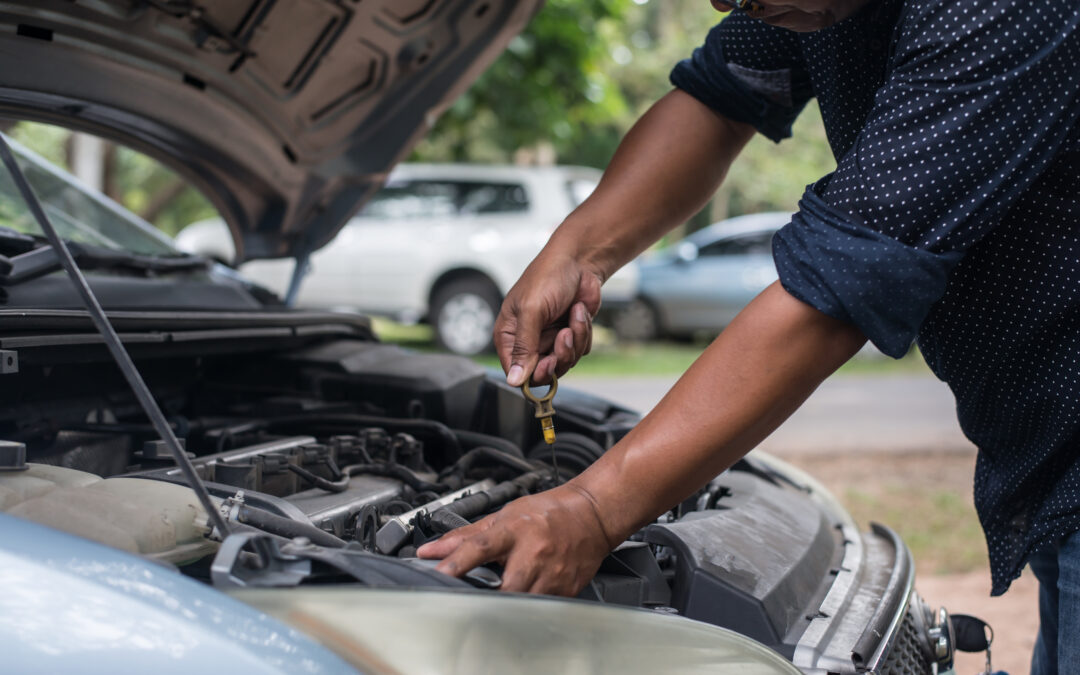8 Warning Signs of a Failing Alternator
Imagine you’re running late for work, you jump into your car, turn the key, and… nothing happens. Or worse, your car starts, but a few minutes later, it stalls in the middle of traffic. Frustrating, right? Many drivers have been there, and more often than not, the culprit is a failing alternator.
The alternator is the unsung hero of your car’s electrical system. It keeps your battery charged and powers everything from your headlights to your radio. When it starts to fail, it doesn’t just affect your battery—it can create a chain reaction of problems that leave you stranded.
Most roads, especially in the 3rd world countries are unforgiving, and neither are unexpected car issues. Knowing the warning signs of a failing alternator can save you time, money, and a lot of unnecessary stress. Let’s get into what an alternator is, how it works, and the signs you need to watch out for before it leaves you stuck on the side of the road.
What is an Alternator?
An alternator is a vital part of your car’s electrical system. It keeps your car battery charged and powers the electrical components of your vehicle. Think of it as the powerhouse that allows you to use your headlights, radio, air conditioning, and other electrical features while driving. Without a working alternator, your car battery would quickly drain, leaving you unable to start or operate your car.
Where is the Alternator Located in Your Car?
The alternator is typically located at the front of your engine. It’s connected to the engine by a belt, often called the serpentine belt. You can usually spot it as a small, cylindrical component with vents and wires connected to it. Knowing its location can help you identify issues like loose belts or visible damage.
What is an Alternator Made Up Of?
An alternator is made up of several key components that work together to generate electricity:
- Rotor and Stator: These are the main parts that produce electricity. The rotor spins inside the stator, creating a magnetic field that generates an electric current.
- Brushes: These small components maintain contact between the rotor and the rest of the alternator to ensure a continuous flow of electricity.
- Voltage Regulator: This part controls the amount of electricity the alternator produces, ensuring it doesn’t overcharge or undercharge your battery.
- Pulley and Belt: The pulley, driven by the engine belt, helps the alternator spin and generate power.
These components work together to ensure your car’s electrical systems function smoothly. However, like any part of a car, the alternator is subject to wear and tear. Over time, its internal parts may fail, leading to the symptoms discussed below.
8 Warning Signs of a Failing Alternator Every Driver Should Know
1. Dimming or Flickering Lights
One of the first signs of a failing alternator is dimming or flickering lights. This happens because the alternator isn’t providing enough power to your car’s electrical systems.
Why Does This Happen?
The alternator’s role is to supply power to your battery and electrical components. When it starts to fail, it can’t maintain a steady flow of electricity. As a result, lights, especially headlights, may begin to flicker or dim because they aren’t getting enough power.
How to Spot This Driving Conditions
Night driving is common, especially on poorly lit roads. Dim or flickering headlights can be dangerous, reducing visibility and making it harder to spot hazards like potholes, road signs, or pedestrians. Interior lights and dashboard lights may also flicker or dim, signaling an alternator issue. If you drive in areas with little street lighting, this issue becomes more noticeable and should not be ignored.
What You Can Do
If you notice any dimming or flickering lights, it’s crucial to address the problem early. A professional mechanic can check your alternator and determine if it’s failing. Don’t wait for the issue to worsen, as this can lead to more significant electrical problems or a dead battery. For reliable and professional mechanics, consider checking out Everything Motors for expert services to keep your car in top condition.
2. Warning Lights on the Dashboard
Your dashboard is like your car’s communication hub. If the battery warning light (a battery symbol) illuminates, it could indicate an alternator issue.
What Does the Warning Light Mean?
This light often signals that the alternator isn’t providing sufficient power to recharge the battery. Ignoring it could result in a complete electrical failure.
What Actions Should You Take?
If you see this warning light, check your battery and alternator immediately. Head to a trusted mechanic or auto shop for a thorough inspection. For more details on other critical warning lights, check out Dangerous Vehicle Warning Lights You Must Never Ignore.
3. Strange Noises
A failing alternator can produce unusual noises like whining or grinding. These sounds often come from worn-out bearings or a damaged pulley.
Why Should Drivers Pay Attention?
In Nigeria, driving conditions are often noisy, making it easy to overlook subtle sounds. However, paying attention to unusual noises can save you from more significant issues down the road.
What You Can Do
If you hear strange sounds while driving, don’t ignore them. Schedule a vehicle inspection to determine the source of the noise.
4. Electrical Malfunctions
A failing alternator can wreak havoc on your car’s electronics, causing power windows, air conditioning, or even your radio to malfunction.
Common Signs of Electrical Issues
- Power windows may operate slower than usual.
- The air conditioning may blow warm air.
- The radio may experience poor reception or shut off.
How Drivers Can Handle This
If you notice these issues, test your vehicle’s electronics. Weak or inconsistent performance often points to alternator problems. Get it checked to avoid further complications.
5. Frequent Stalling or Difficulty Starting the Car
Frequent stalling or difficulty starting your car is one of the warning signs of a failing alternator. This issue arises because the alternator is responsible for charging the battery, which provides the power needed to start the engine. When the alternator isn’t functioning properly, your car may struggle to start or stall unexpectedly.
How the Alternator Affects Engine Start-Up
The alternator supplies power to the engine’s ignition system. If it’s not working properly, the engine may struggle to start or shut off unexpectedly.
Why This Matters
Warm climate can worsen starting problems. High temperatures increase the strain on your car’s electrical components, making alternator issues even more critical.
What to Do
If your car stalls or has trouble starting, it’s essential to have the alternator and battery inspected as soon as possible. Visit a mechanic to run a diagnostic scan and pinpoint the cause. Everything Motors can help you find affordable mechanics in Lagos, Port Harcourt, and Asaba to quickly resolve these issues..
6. A Smell of Burning Rubber or Wires
A failing alternator can cause overheating, leading to a burning smell. This smell often comes from overheated components or frayed belts.
Why Does This Happen?
When the alternator is under strain, its internal components can overheat. A slipping or damaged belt can also create a burning rubber smell.
Immediate Actions
If you detect a burning smell, turn off your engine immediately and call a mechanic. Ignoring this sign could result in severe damage to your vehicle.
7. Dead Battery
A dead battery is one of the most common outcomes and a clear indicator among the warning signs of a failing alternator. Without a properly functioning alternator, the battery cannot recharge effectively, leaving you stranded when you least expect it.
Why Is This a Big Deal?
Car batteries are expensive, and frequent replacements due to alternator failure can put a dent in your wallet. A dead battery can leave you stranded in inconvenient locations, whether you’re on a busy street or far from a service center. Having to deal with battery issues repeatedly can lead to unnecessary expenses and frustration.
What to Look For
If your battery drains quickly or requires frequent jumpstarts, your alternator may be to blame. It’s important to have both the alternator and the battery tested to identify the root cause. You can also get batteries and other parts from Everything Motors, which offers competitive market prices. For a more comprehensive check, Everything Motors allows you to compare prices for other vehicle parts, ensuring you get the best deal for your repairs.
8. Visible Damage or Wear to the Alternator Belt
The alternator belt is crucial for transferring power from the engine to the alternator. Visible damage, such as cracks or fraying, can indicate alternator problems.
How to Inspect the Belt
- Look for cracks, frays, or looseness.
- Ensure the belt is tight and aligned properly.
Why This Matters for Nigerian Drivers
Regular belt inspections can prevent breakdowns. If you notice any damage, replace the belt immediately to avoid further complications.
Conclusion
Your car’s alternator plays a vital role in keeping everything running smoothly. Ignoring the warning signs of a failing alternator can lead to costly repairs or inconvenient breakdowns.
Everything Motors is here to make car maintenance easier for you. We connect you with trusted mechanics in Lagos, Port Harcourt, and Asaba, offering reliable and affordable services. Whether you need an alternator check, a new battery, or other parts, Everything Motors provides the best prices and expert service.
Don’t wait for your car to break down. Simply fill out the contact form here to get started and connect with a reliable mechanic near you.


